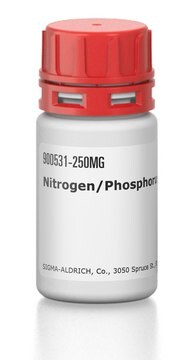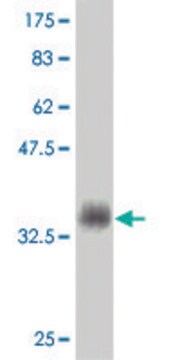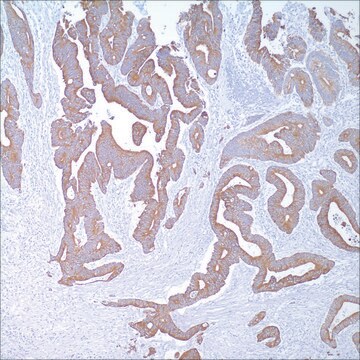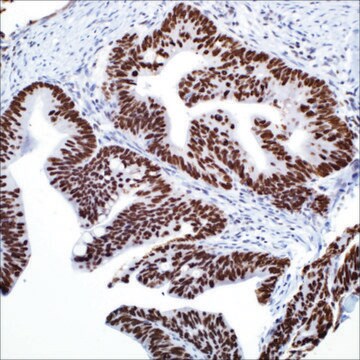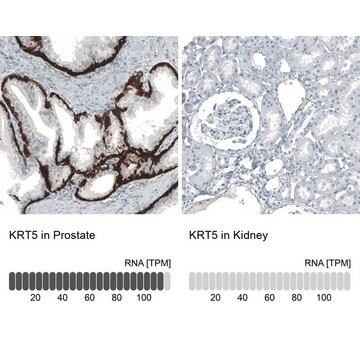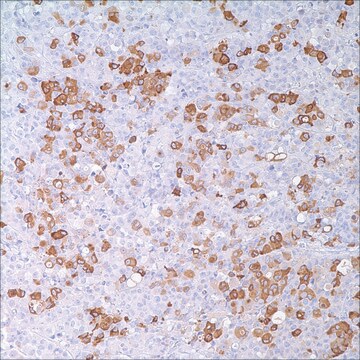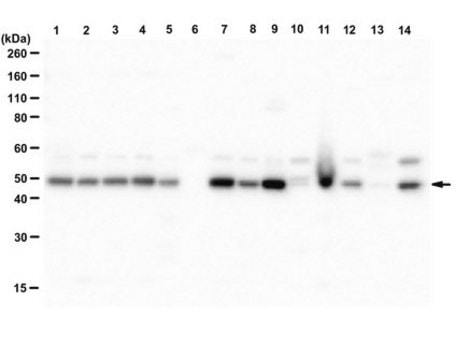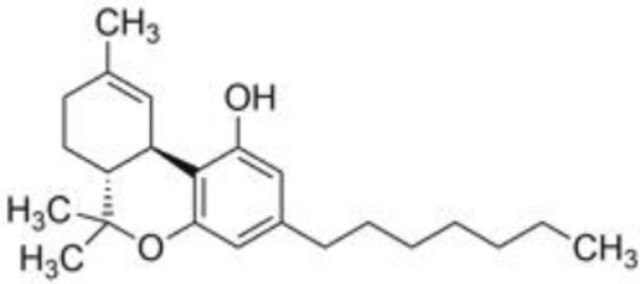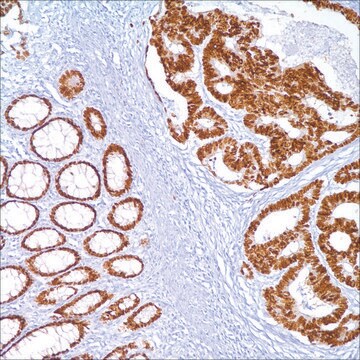905H-0
Cytokeratin 5 (EP1601Y) + Cytokeratin 14 (LL002)
Mouse and Rabbit Monoclonal Antibody
Sinónimos:
Cytokeratin 5 (EP1601Y) + Cytokeratin 14 (LL002) Mouse and Rabbit Monoclonal Antibody
About This Item
Productos recomendados
biological source
mouse
rabbit
Quality Level
100
500
conjugate
unconjugated
antibody form
purified immunoglobulin
antibody product type
primary antibodies
clone
EP1601Y + LL002, monoclonal
description
For In Vitro Diagnostic Use in Select Regions (See Chart)
form
buffered aqueous solution
species reactivity
human
packaging
bottle of 1.0 mL predilute (905H-07)
bottle of 7.0 mL predilute (905H-08)
manufacturer/tradename
Cell Marque™
concentration
0.1-1.5 μg/mL (predilute)
isotype
IgG3
IgG
shipped in
wet ice
storage temp.
2-8°C
Gene Information
human ... KRT5(3852)
General description
Quality
 IVD |  IVD |  IVD |  RUO |
Physical form
Preparation Note
Note: This requires a keycode which can be found on your packaging or product label.
Download the latest released IFU
Note: This IFU may not apply to your specific product lot.
Other Notes
Legal Information
¿No encuentra el producto adecuado?
Pruebe nuestro Herramienta de selección de productos.
Elija entre una de las versiones más recientes:
Certificados de análisis (COA)
¿No ve la versión correcta?
Si necesita una versión concreta, puede buscar un certificado específico por el número de lote.
¿Ya tiene este producto?
Encuentre la documentación para los productos que ha comprado recientemente en la Biblioteca de documentos.
Nuestro equipo de científicos tiene experiencia en todas las áreas de investigación: Ciencias de la vida, Ciencia de los materiales, Síntesis química, Cromatografía, Analítica y muchas otras.
Póngase en contacto con el Servicio técnico